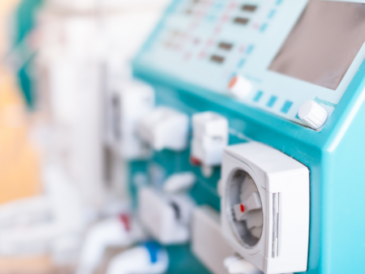Plasmapheresis and hemodialysis are life-saving procedures. People with kidney disease may benefit from either or both of them. But, they are different, and the reason your doctor may ask for any of them varies from one person to another.
What is plasmapharesis?
Blood is composed of cells and a liquid portion called plasma. Plasma contains lots of substances like electrolytes, hormones, antibodies, and proteins.
Plasmapharesis is a procedure used to remove plasma from blood. When this is done, another fluid such as saline (salt water) or albumin (a protein) is used to replace the plasma removed.
What is hemodialysis?
Hemodialysis is a procedure used to remove wastes from the body. It is done for people with kidney disease who cannot remove these wastes.
Without hemodialysis or peritoneal dialysis, a person with kidney failure would have toxin build up except they have a kidney transplant.
Your doctor may request dialysis if you have kidney failure from acute kidney injury or CKD. Hemodialysis is also used to remove poisons in some cases.
Why would a doctor request plasmapharesis?
Plasmapheresis can be used to treat some medical conditions caused by certain antibodies in the blood. Plasmapheresis gets rid of these harmful antibodies, making it a treatment option.
Some conditions treated with plasmapharesis are
- Gullain Barre syndrome
- Multiple sclerosis
- HELLP syndrome
- Hemolytic anemia
- Scleroderma
- Systemic amyloidosis
Kidney diseases requiring plasmapharesis
Some kidney diseases caused by antibodies can be treated with plasmapharesis. They include
- Focal segmental glomerulosclerosis
- ANCA associated glomerulonephritis
- Lupus nephritis
- IgA nephropathy
Plasmapheresis is also useful in some individuals being worked up for kidney transplant. A person with many antibodies is highly likely to reject a transplanted kidney. Plasmapheresis can be used to remove these potentially dangerous antibodies and improve the odds of success following kidney transplantation.
Plasmapharesis side effects
If you have been asked to do a plasmapheresis, you may be wondering- is plasmapheresis safe?
This procedure is relatively safe but is associated with complications such as fluid imbalance, low calcium, low magnesium, low core temperature, reaction to the transfused fluids, and low blood pressure. This means you may experience
- cold
- dizziness
- fatigue
Because this procedure involves removing blood from your body and returning it, there is a risk of getting an infection
Hemodialysis side effects.
Some side effects of hemodialysis include
- low blood pressure
- Muscle cramps
- Seizures
- Low blood sugar
- Bleeding
- Infections
Here are 10 common complications of hemodialysis.
The information on this website are for educational purposes only. Please discuss your medical concerns with your healthcare provider.





